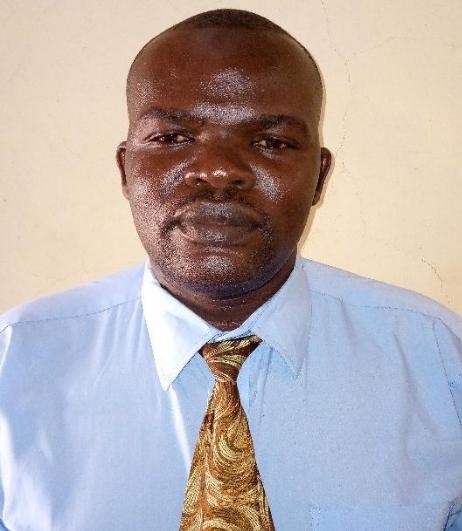
Naaman Ondego Arodi is a career teacher turned breeder with Msc. in Plant breeding and Biotechnology. Throughout my teaching career, I have been passionate about unmasking the DNA of plants in order to understand how pants respond to various stresses. My academic journey began at Kagumo TTC where I graduated with a Diploma in education and after a year of service, enrolled for a Bachelor of education degree at Kenyatta University, a pass that seemed to block my father passion to advance my education. After five years of pondering the next action, the University of Nairobi came in handy to admit me for the Msc. course in Plant Breeding and Biotechnology. Even though it took me sometimes to complete, it has taught me the virtue of patience, humility and hard work. The faculty also exposed me to several workshops and conferences which broadened my network .During my studies I was attached at ICRISAT as a graduate scholar and got the experience of breeding work, data collection and analysis, trial management etc. The courage I took to undertake my studies under the selfsponsored program also benefited me since I obtained funding’s from ABCIC and RUFORUM that made me complete my studies successfully. I would like to thank very much my academic supervisors for their time, encouragement and mentoring throughout my study. I still enjoy teaching and mentoring learners to take up agriculture as a subject and as a profession and planning to start my PhD journey soon at the UoN. My research interest is in the development of sorghum lines with multiple resistance to biotic and abiotic stress
Abstract
Food security in the world is facing serious challenges due to climate change effect. The problem is greatly being felt in Sub-Saharan Africa where drought effect is severe, rainfall is low and erratic leading to low agricultural productivity. The solution to food insecurity in these areas depends on the breeding of crop genotypes with improved adaptation for yield, drought and nutrition. Thus this study was undertaken to a) to identify the performance of elite sorghum varieties for yield under moisture stress b) to determine the nutritional composition of International Centre for Research in Semi-Arid Tropics (ICRISAT) sorghum genotypes and, c) to identify the gene action for grain yield among the crosses generated between Kenya Agricultural and Livestock Organization (KALRO) and ICRISAT genotypes. The elite genotypes from KALRO were evaluated for grain yield under drought stress for three seasons at KALRO- Kiboko Substation during the 2014/2015 short and long rains. For nutrition analyses, grains from ten genotypes derived from ICRISAT were evaluated for nutritional composition at the University of Nairobi food science department. The data sets were subjected to analyses of variances (ANOVA). Results showed that two KALRO genotypes namely Red Swazi and Wheatland reported greater yield sand two ICRISAT genotypes namely IESV23006DL and IESV23010DL scored highly in terms of total proteins and total phenols. The two selections from KALRO were then crossed to two selections from ICRISAT to generate population which combines both yield, drought tolerance and nutritionally rich genotypes using North Carolina mating design 11(NCD11) in randomized complete block design with three replications. The F1 generation were advanced to F2. Agronomic data was obtained from ten plants selected randomly from the middle rows and subjected to ANOVA and mean squares obtained used to determine the combining ability of the traits. ANOVA revealed combining abilities to be positive towards traits such as plant height, panicle yield and days to 50% anthesis. These sorghum progenies promise to ensure food security and positively meet the challenges of malnutrition and lifestyle diseases affecting human health in view of climate change effects experienced in the semi-arid areas of Kenya.
Key words: Drought, nutritional composition, gene action
